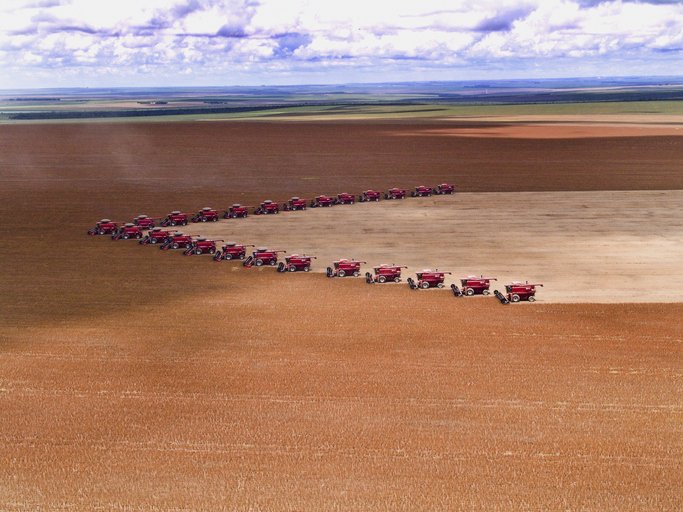Imports from carbon-rich regions
The report reveals that a large proportion of commodities imported into the EU is sourced from biodiverse and carbon-rich regions.
More than half of the Cerrado, the most biodiverse savannah in the world, has already been cleared, mainly to make room for soy and beef production.
In 2019, EU imports of beef from the Cerrado accounted for 26% of the EU’s total imported beef and almost one fifth of the beef exports from the region.
An estimated 14% of the Argentine Chaco, a mosaic of natural grassland and savannahs, was converted to agriculture during the 2000s, mainly for soy production. In 2019, the EU imported around 24% of the total soy exported from this biome.
94% of Sumatra’s peatland has been converted or degraded mostly for palm oil, plantation forest for pulp production and rubber.
Approximately 19% of the EU’s imports of natural rubber and 14% of palm oil, palm kernel oil and palm kernel meal could originate from Sumatra.
The Cuvette Centrale, in Democratic Republic of Congo (DRC), contains the world’s largest peatland complex storing 30.6 billion tonnes of carbon below ground.
20% of all timber exported from DRC goes to the EU, making it a significant driver of the country’s timber industry.
Shopping and the planet
The report concludes that the inclusion of products from other ecosystems in due diligence systems is feasible for companies. Several existing laws (e.g. the EU’s Renewable Energy Directive and France’s Duty of Vigilance Law) already extend to ecosystems other than forests, and companies are increasingly implementing policies to ensure conversion-free supply chains.
‘EU Member States and the European Parliament now have the chance to get this right. Including non-forest ecosystems in the scope of the law will give citizens the certainty that the products they buy are not linked to the destruction of our planet.’
ANKE SCHULMEISTER-OLDENHOVE
Senior forest policy officer at WWF’s European Policy Office
WWF has long advocated for legislation on deforestation. Through the #Together4Forests campaign, WWF and other environmental NGOs mobilised 1.2 million people to demand a strong new EU law in December 2020.
The EU is one of the largest importers of tropical deforestation and associated emissions, second only to China.
 Play Video about This Rock Might Just Save The World
Play Video about This Rock Might Just Save The World Play Video about Play 2 hours of rock
Play Video about Play 2 hours of rock Play Video about Play 2 hours of brook
Play Video about Play 2 hours of brook Play Video about Play 2 hours of sheep
Play Video about Play 2 hours of sheep











































